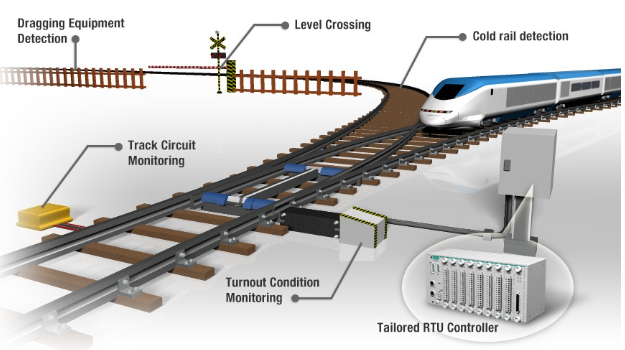Widespread adoption of GPS technology has taken place in different industries over the past few decades. It has become almost indispensable in fleet management and coordination, asset management, and several other areas. GPS tracking system railway is one such area that has benefited significantly from this technology.
Explore the different industries that rely on specialized GPS technology designed for railway tracking. Find out how this tech is used in these industries to smoothly run their operations.
Notable Industries that Use Railway GPS Tracking
Many companies in the following industries integrate railway GPS tracking into their railroad transportation operations. The technology helps them speed up their deliveries while making their operations more efficient.
Manufacturing Industry
Railroad transportation is used by many companies within the manufacturing industry that produce large or heavy goods. Transporting such heavy loads through road transportation is usually unfeasible, especially due to the high fuel costs involved. Many companies in the manufacturing business require large transportation vehicles. This can not only cause road traffic congestion but also increase safety risks.
When such manufacturing companies use railroad transport integrated with GPS tracking, they can move heavy and large cargo without the need to rely on large and heavy-duty road transportation. The benefits include improved road and cargo safety and increased fuel efficiencies.
Freight & Logistics Industry
The freight and logistics industry also relies on rail networks to boost their load capacity. Additional benefits include lower emissions and reduced costs. Besides, railroad transportation also helps cover larger distances at more cost-efficient costs. Integration with GPS tracking enables businesses operating in this industry to operate more efficiently while improving safety and delivery speeds. When it comes to the business of goods pick-up and delivery, it is important to use the most cost-efficient and convenient options. GPS-tracked railway transportation helps tick all the right boxes.
Construction Industry
The construction industry also relies heavily on railroad transportation and the benefits offered by GPS integration. Steel, aggregates, stone, wood products, minerals, and other materials are regularly shipped by rail because they are exceptionally heavy and bulky.
Using railroad transportation, it becomes much simpler to transport such heavy loads. The use of GPS tracking systems for railroad transportation in the construction industry helps expand the business while keeping fuel expenses low.
Consumer Goods Industry
Another industry that benefits consistently from the use of GPS-based railway transportation is the consumer goods industry. Railroads can be used for transporting consumer goods from the production hubs to the distribution facilities.
The use of rail networks can make it highly cost-efficient and convenient for businesses as well as consumers who need the goods in stores near them. The use of rail networks for transporting consumer goods significantly reduces the need for road transportation. While GPS-based railroad transportation can be used for efficiently and effectively transporting goods across long distances, road transportation can be used to deliver goods to retail outlets.
Accuracy of GPS Tracking
Whether used for railroad or road transportation, GPS technology has become the preferred tracking system because it provides highly reliable and accurate data on a consistent basis. In ideal conditions, a GPS tracking system railway can be precise to within a few meters. This can allow you to know the exact location of a railcar, cargo, container, or train.
While there are some factors that can affect the accuracy of GPS tracking systems by a small margin, fortunately, weather is not one of them. Whether the train is moving through heavy rain, storms, or gusty winds, the system will continue to send accurate location data. Thus, the overall benefits of using GPS tracking for railroad transportation cannot be overstated.











